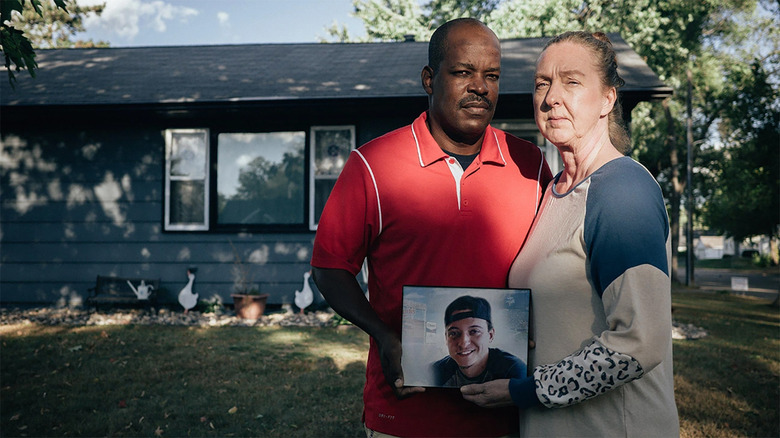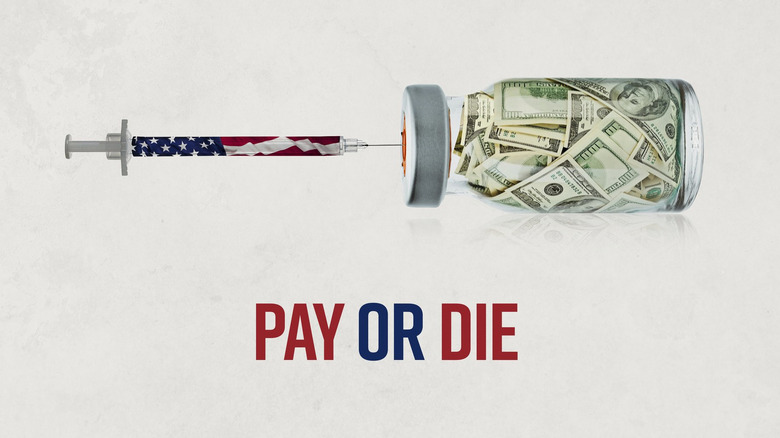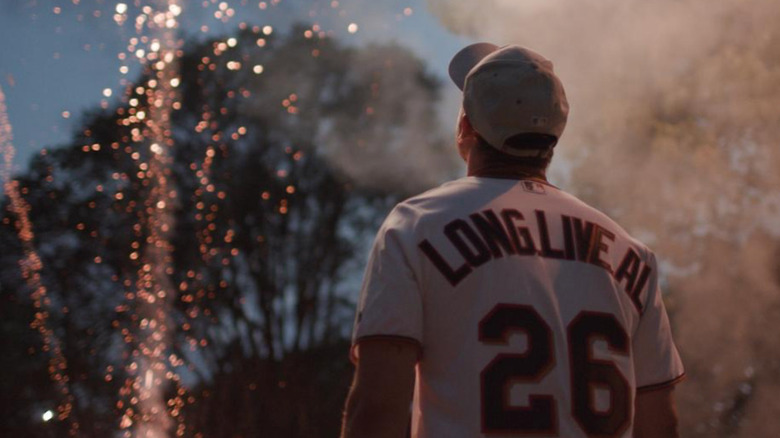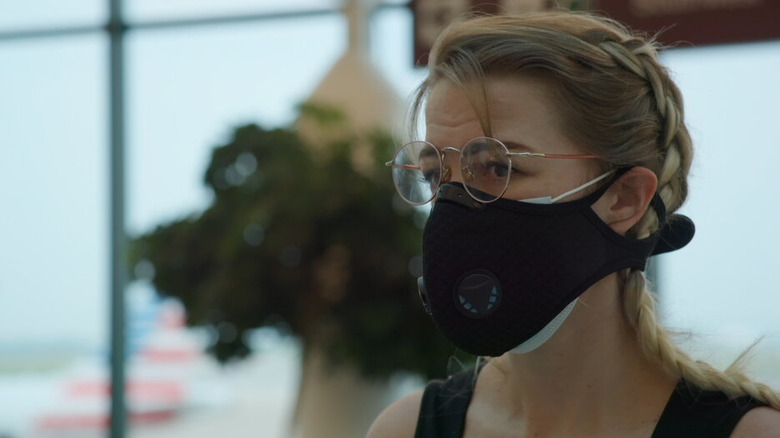Pay Or Die Review: An Emotional, Desperate Plea To Stop The Unethical Overpricing Of Insulin [SXSW 2023]
"Pay or Die" is not only the title of a new documentary that debuted at the 2023 SXSW Film Festival, but it's also the brutally blunt choice given to millions of Americans who have been forced to pay exorbitant prices for the inexpensively produced medicine that they need in order to stay alive. In the United States, of the 37 million people who have diabetes, a chronic health condition that affects how your body turns food into energy and results in high blood sugar that can cause more serious health problems. Around 8.4 million of those people that have diabetes rely on insulin to survive. Of those people, around 2 million struggle to afford their insulin costs, which has increased around 600% over the past 20 years.
Sadly, many people have died while trying to get by on the insulin they can afford, rationing it to last as long as possible until they can afford another supply. This is not how anyone should be forced to live their lives, and "Pay or Die" demands action by pulling at our collective heartstrings, showcasing the everyday families who have been impacted by the unethical whims of greedy pharmaceutical companies.
Only in America
"Pay or Die" comes to us from executive producer Sarah Silverman (yes, that Sarah Silverman) and directors Rachael Dyer and Scott Alexander Ruderman, with the latter having a personal stake in the film's subject matter. Ruderman was diagnosed with type 1 diabetes when he was just 19 years old, forcing him to micromanage his diet along with doses of insulin, which means every single day's activities must be coordinated in order to ensure that his blood sugar doesn't get too high. Though Ruderman was able to afford his insulin while on his parents' insurance plan, after hitting the age of 26, he was forced to confront the rising costs of insulin and the distressing danger of living with type 1 diabetes in America.
Around the rest of the globe, the cost of insulin is a mere fraction of what it costs in the United States. The average price of insulin in America is roughly "more than ten times higher than the average for all of the other countries combined," according to Rand Corporation. A vial of insulin can cost upwards of $300 in the United States. The result is a population afraid that their paycheck won't be able to afford them the insulin they need to live another day. People of every age have died far sooner than they should have simply because pharmaceutical companies like Eli Lilly, Novo Nordisk, and Sanofi have made it impossible to afford. This comes after, as the documentary explains, the creators of insulin sold their patent for the drug for just $1, simply because they didn't think they should profit from it. But of course, this is America, where someone is always looking to make a buck off someone else's suffering.
Even though Eli Lilly has recently taken steps to drastically lower the price of insulin recently, as the directors responded in a statement provided to the press, "...it is important to remember that the key issue is not about these companies voluntarily slashing prices; it's about changing laws, so the insulin manufacturers do not have the ability to raise the prices again."
The real cost of greed
"Pay or Die" offers a heartbreaking emotional plea by telling the very real stories of a variety of Americans who are doing what they can to get by.
There's Sandra and Emma, a mother and her 11-year-old daughter who both have type 1 diabetes. They've been through the wringer, at one point being forced to live in their car parked in a Walmart parking lot because the cost of insulin combined with Sandra's job loss left them without any choice by to pay for their insulin and become homeless in the process. Today, their best hope is hopping the border over to Canada where vials of insulin cost around $20 each, allowing them to stock up on medicine and save hundreds of dollars in the process. In fact, it would be cheaper for some people to fly across the globe to buy cheaper insulin than it would be to keep paying American prices.
The film also follows Cara, a 19-year-old runner dealing with a recent diagnosis of type 1 diabetes in the midst of the coronavirus pandemic, which has proven to be even deadlier to those with diabetes. Though diabetes comes with the stigma of unhealthiness or symptoms like obesity, it's important to remember that type 1 diabetes is a hereditary ailment, and there are perfectly healthy and fit people who have to deal with the same struggles. Cara is proof of that, and her presence acts as a reminder that this can happen to anyone.
Meanwhile, others have already dealt with the tragedy that comes from overpriced insulin, and they're still dealing with it today. Nicole and James are the parents of a 26-year-old man named Alec who died while rationing his insulin due to the overwhelming costs. Alec had recently come off of his parents' insurance plan, and he simply could not pay for the supply that he needed to live. Alec's unnecessary death has driven Nicole and James, along with a group of passionate people who have endured similar circumstances, to push the Minnesota state legislature to pass laws that will ensure this will not happen to anyone else. It's a small step towards what they hope will be a much bigger solution.
Making an impact
Ultimately, "Pay or Die" is an infuriating documentary that will make you hate the capitalistic approach to healthcare in America, especially since this is only one disease and one medicine out of many that are being exploited by pharmaceutical companies every day. By shining a light on everyday citizens who are barely getting by each day, directors Ruderman and Dyer illustrate how this issue is impacting people who could easily be your sons and daughters, mothers and fathers, or anyone that you care dearly about.
If there's one problem with the film, it's that I wish we could see a broader spectrum of those impacted by diabetes to further strengthen the message. Furthermore, it would have been helpful to have a look at the bigger picture across the nation. While the intimacy of focusing on these specific families is effective, shining a light on even more would hit even harder. Of course, that would probably require a longer movie or even a documentary series. As it is, the film does an admirable job of hitting the point home with an economical runtime so as not to burn out anyone who might lose interest.
After watching this doc, I don't know how anyone charging sky-high prices for insulin can sleep at night. Here's to hoping that "Pay or Die" will spread like wildfire and people diagnosed with diabetes will not have to needlessly die because of human greed.
/Film Rating: 8 out of 10



